South Africa
South African lawmakers will elect the president on Friday after being sworn in at the first Parliament sitting.
This session will reveal the unity government the African National Congress (ANC) has formed after losing its majority for the first time since 1994.
Lawmakers will also elect the new speaker and deputy speaker, with choices influenced by ANC-opposition negotiations following the recent election results.
Parties are under pressure to conclude negotiations by Thursday to fulfill the constitutional requirement to swear in lawmakers and elect the president within 14 days of election results being declared.
The African National Congress won 40% of the national vote during the country's highly contested elections, followed by the Democratic Alliance with just over 21% and the newly formed uMkhonto weSizwe Party with about 15% of the vote in their first-ever elections.
The ANC has opted to form a national unity government that will include most political parties that contested the elections instead of a straightforward coalition with a few parties.
However, initial negotiations have laid bare the deep divisions between South Africa's political parties, with some already rejecting the proposed unity government while others have agreed to be part of it.
The ANC's national executive committee, the party's highest decision-making body between conferences, will meet in Cape Town on Thursday to finalize the agreements it has made with the other parties and will make an announcement afterwards.
On Wednesday, the Inkatha Freedom Party, the fifth-biggest party with 3.85% of the vote, confirmed it had decided to join the national unity government that will be led by the ANC.
It said it had also started negotiations to form a coalition with the ANC and the Democratic Alliance in the KwaZulu-Natal province where the MK Party got the most votes.
"We will participate in the government of national unity for the sake of our country and for the sake of our people, who want life to continue with a stable government that will address their challenges," said IFP president Velenkosini Hlabisa.
While the MK Party emerged as arguably the biggest winner in the elections with an impressive performance despite being formed only six months ago, it has refused to join the unity government and sought to prevent the sitting from going ahead.
Th Constitutional Court on Thursday dismissed the party's application to interdict the chief justice from convening the first sitting, giving a go-ahead for it to proceed.
The party continues to dispute the election results, claiming widespread vote-rigging, and has said its 58 elected lawmakers will boycott the sitting.
South Africa's constitution says only one-third of Parliament's 400 lawmakers need to be present for a quorum and for the vote to elect the president to proceed.
South Africa's independent electoral commission and independent observers have declared the elections free and fair.
As the deadline to reach an agreement approached on Thursday, the rift between the second-biggest party, Democratic Alliance, and the fourth-biggest party, Economic Freedom Fighters, appeared to be one of the main sticking points.
The leftist Economic Freedom Fighters have said they will not be part of any arrangement that involves the centrist Democratic Alliance, which they accuse of being anti-Black and opposed to policies that aim to address the injustices of South Africa's past, including black economic empowerment and land redistribution.
The parties remain ideologically at odds, with the Democratic Alliance declaring the EFF its top rival last year.
The animosity between the two suggests the ANC might have to form a national unity government that does not include the EFF and the MK Party, a pattern that may also play out in coalition governments at the provincial level, where the ANC also failed to maintain a majority in several provinces.



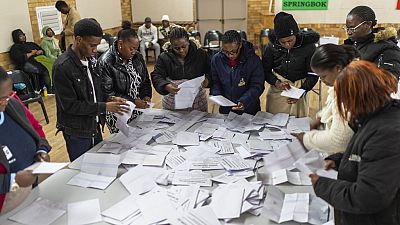

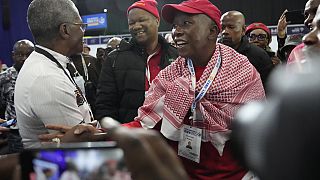
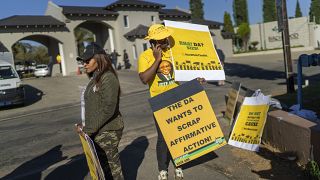
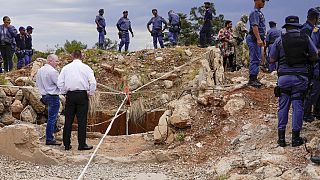
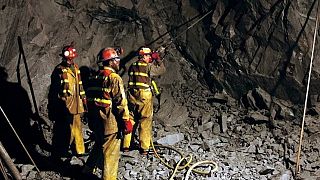
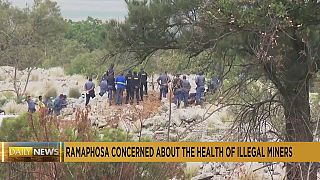

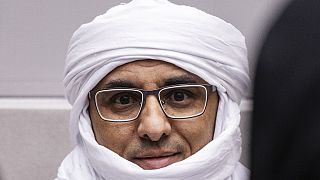
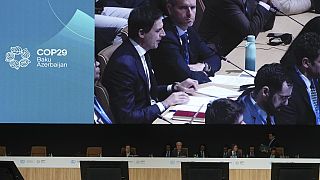
Go to video
Archbishop of Canterbury will end official duties in early January amid sex abuse scandal
Go to video
Congo opposition leaders call for protests against president's plan to change constitution
Go to video
At least 7 members of Nigerian security force missing after insurgents ambush convoy
01:30
Mali: Former al-Qaida-linked police chief sentenced to 10 years for war crimes
Go to video
Nairobi Archdiocese declines President Ruto's cash donation
Go to video
Congo accuses rebel group of 'ethnic cleansing' in country's east